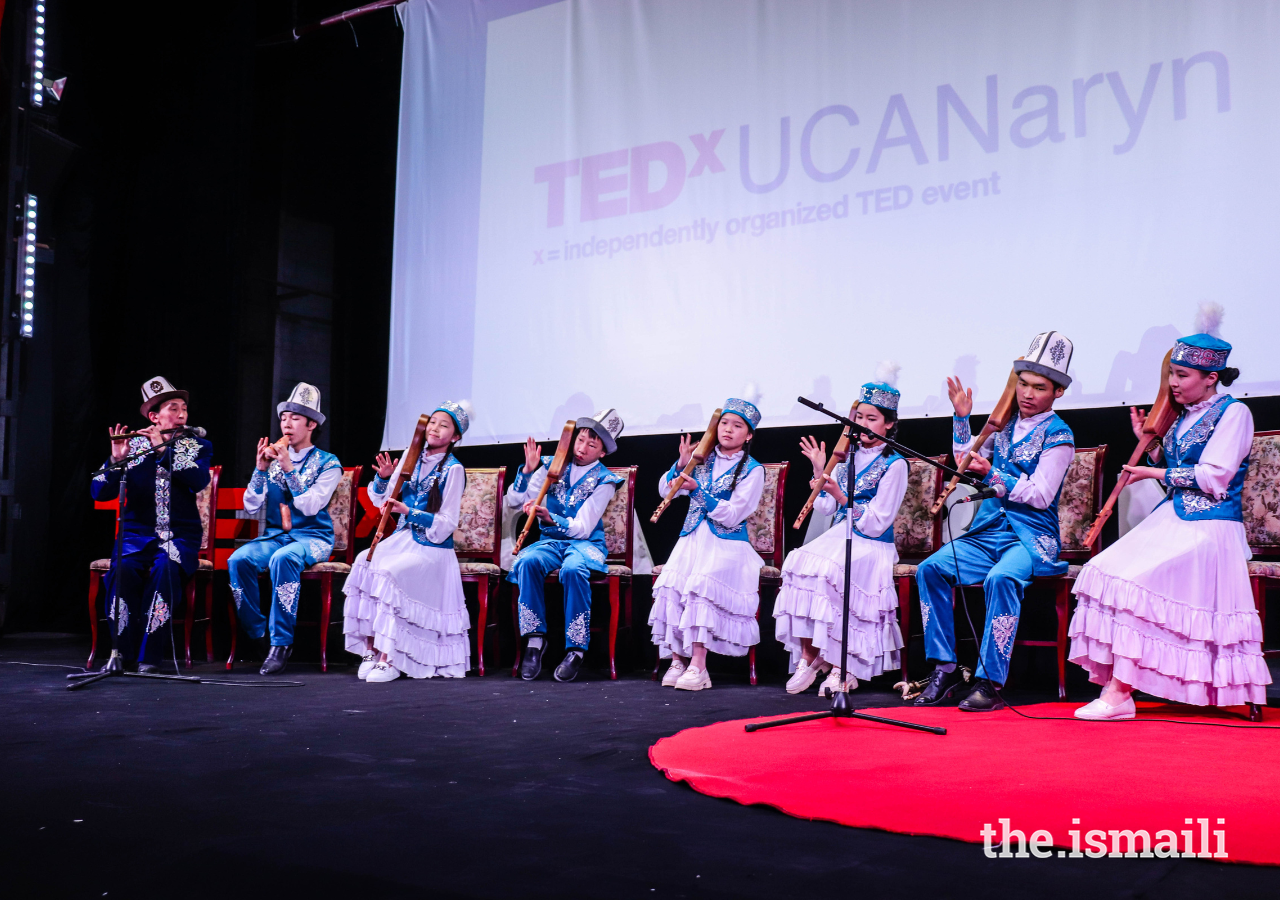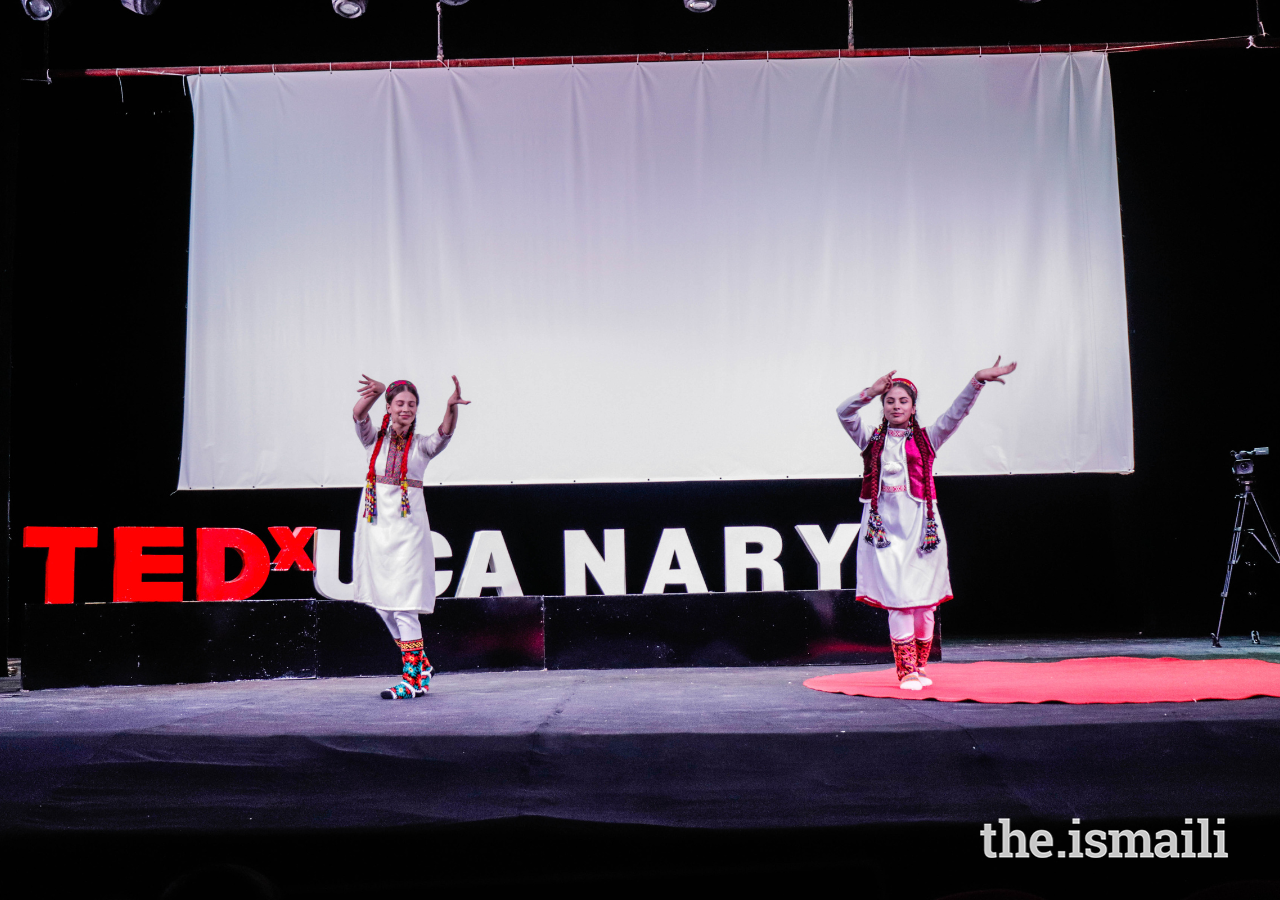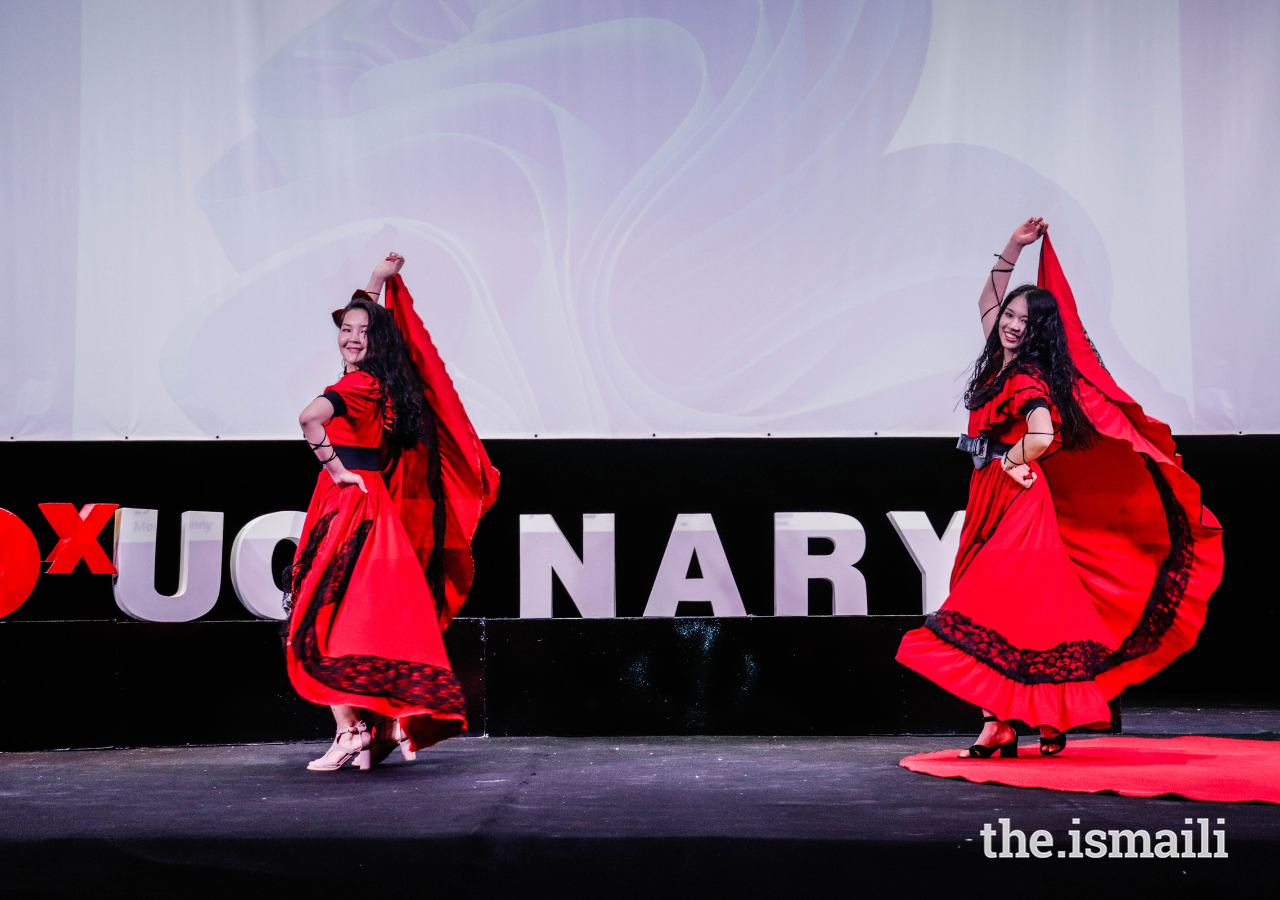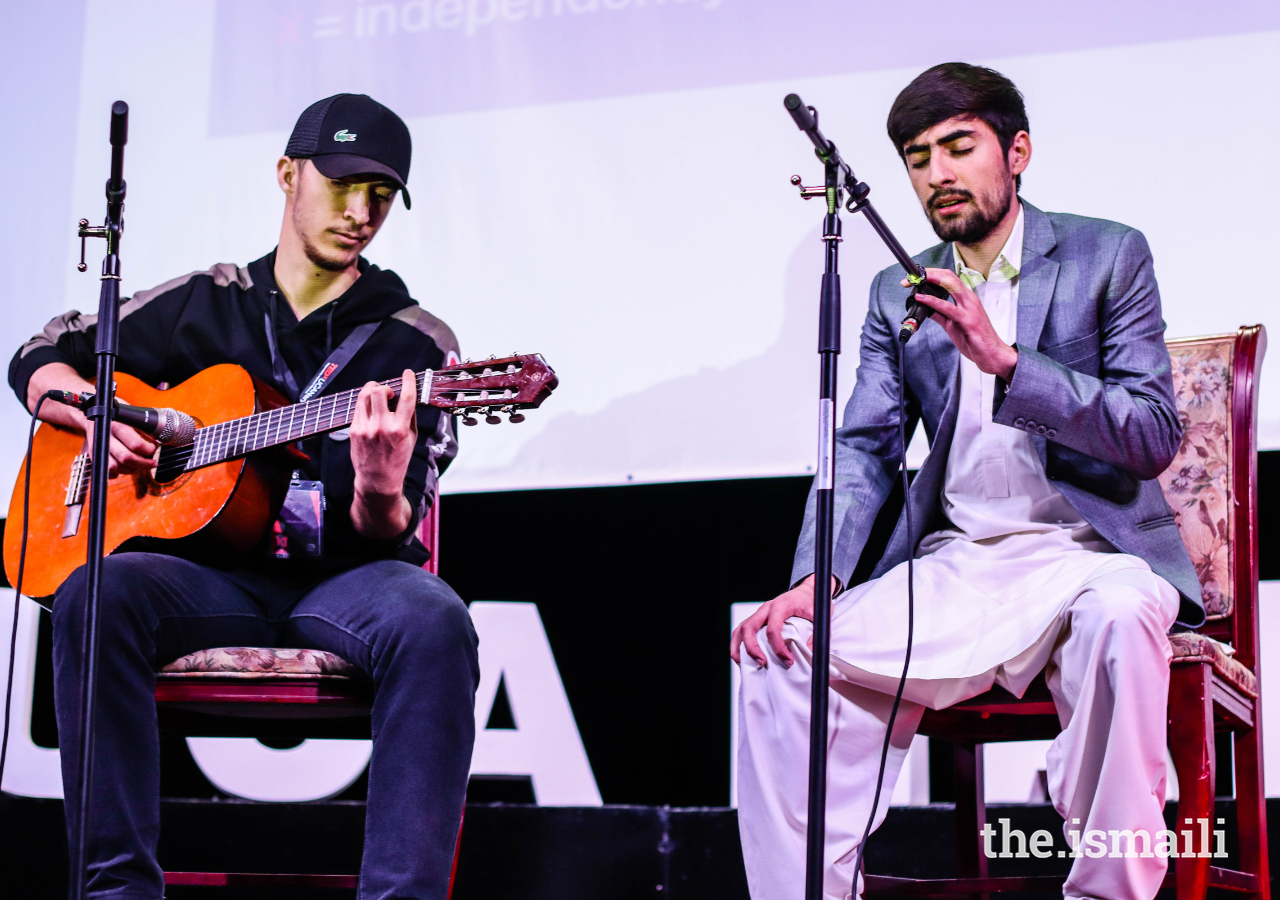Speakers from various cultural and professional backgrounds came together earlier this year for TEDx UCA Naryn, which was finally hosted in -person after multiple postponements due to the Covid-19 pandemic.
A TEDx conference is a local gathering where live talks and performances are shared with a community of curious, like-minded people. The content and design of each conference is unique – the goal is to spark conversation and connection, and to spread ideas. The event in Naryn, Kyrgyzstan, was no different.
A diverse group of guests were in attendance, including students and staff of the University of Central Asia (UCA), students from other international universities in Kyrgyzstan, and representatives of media and technology organisations in the country.
The TED umbrella organisation was founded in North America in 1984 with the aim to educate individuals on the convergence of Technology, Entertainment, and Design (TED). Their conferences have become famous for their short, yet informative lectures and their collection of more than 3,000 talks have been watched over a billion times worldwide.
TEDx events are planned and coordinated independently from TED but are organised under its licence, and follow certain guiding principles. This year’s event in Naryn, supported by UCA, was hosted under the theme “less is more,” which included a number of sub-themes.
Seeking truth and authenticity
An awareness of death, and the process of dying often leads people to live a simpler, truer life, suggested speaker Lucy Palmer, a Senior Lecturer at UCA. Lucy, from Australia, works as a journalist, foreign correspondent, and radio documentary maker. She is also a twice-published author.
“There is something about the idea of our own mortality that somewhat sharpens the mind,” Dr Palmer said. “What if you had 6 months to live or six weeks to live. What would you spend your time doing?,” she asked the audience. “Your answer will tell you what you need to be doing with your life. Or what you need to be doing more of in your life.”
In her talk, she explored her experiences with dying people, the clarity they find about what truly matters, and the wisdom they leave behind.
Similarly, Alif Khalfan, from the United States, focused his talk on what really matters in life. He spoke of the ‘minimalist’ lifestyle trend and its advantages in the age of overconsumption and materialism. Alif currently serves as Vice President at Walt Disney’s theme parks in California. He shared his philosophy of decreasing social media consumption, and focusing more on finding purpose in life.
Serving others doesn’t have any prerequisites, he stated. “Unlike with a job where we have to qualify to participate, or an item we have to save up money to afford, we have the opportunity to serve at every age and stage of our lives. And as we grow and learn, we then have more to share.”
“When we leave this earth,” he added, “the most valuable assets we leave behind are not material goods, but rather the memories and knowledge we spread to those who survive us.”
Habits and financial literacy
The concept of habit-forming was promoted by Abdullah Nazari, a Computer Science student at UCA, originally from Afghanistan. His talk focused on the processes of developing good habits, in contrast with bad habits, and the possibilities and consequences of each.
Ainura Amanalieva, co-founder of the Ololo group of companies in Kyrgyzstan was next up. Her talk centred on financial literacy in Central Asia. She explained how the concept of minimalism can help to allocate money in a financially responsible way.
Keeping track of your spending is easier, she said, once you build the habit of refusing to waste money on things that don’t legitimately add value to your life.
“Sometimes we don't realise how much the choices that we make affect our future,” Ainura said. “We often have to make choices. Car or Education? A Fancy Wedding or a Start-up? New pair of jeans or programming classes?
“Simple choices can change our life. What will you choose?”
Words, attention and being present
In her younger years, two accidents changed the life of Dinara Ruslan, an entrepreneur and CEO/ Founder of IT company Codify, based in Singapore. She recounted her journey from a shy young girl with speech defects and panic attacks to a successful woman entrepreneur and public speaker, helped by the life-changing power of words. Dinara believes that words are powerful, and that more words do not necessarily mean better. Fewer words, but deeper ones, expressed with love and care are more important, she said.
“Words are a very powerful tool,” Dinara said. “Words can be used as a weapon to hurt. To make them feel pain. But at the same time, powerful words can heal people.”
Dr Soheil Ashrafi, Associate Dean and Chair of the Communications and Media department at UCA’s Naryn Campus also had an opportunity to speak at the conference. Dr Soheil is from Australia but is rooted in Iran. In his talk, he suggested that humans are the embodiment of their attention and behaviour; our accomplishments and failures are bound by the ways in which we attend to objects, questions, problems, ideas, and situations.
The talks were followed by musical performances by UCA students and children from the local music school.
In today’s age of distraction and information overload, we often come across images of opulence and overconsumption. The conference helped the audience to think deeper about prevailing attitudes and move towards a minimalist approach.
“In my career, TEDx Naryn has been the most impressive event fully conceived and organised by students that I have participated in,” enthused Dr Ashrafi.
—
Manizha Murodbekova is a graduate of Media & Communications at the University of Central Asia (Naryn campus), and received the all-round leadership award and outstanding community service award at its recent convocation. She currently serves as an Intern with The Ismaili.














